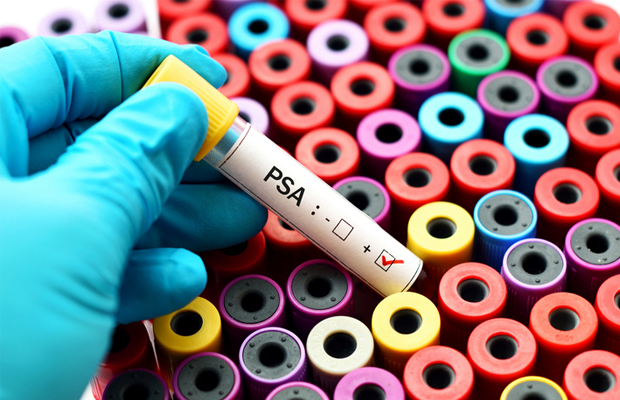
Not only can sex help your general mood (thereby reducing stress), but studies show there are tangible ways sex slows down the ageing process, fights disease and even heals wounds.
Here is a full breakdown of the ways getting it on can save you a trip to the ER.
1. Sex promotes heart health
A study in the American Journal of Cardiology suggests that men who have sex twice a week have a lower risk of cardiovascular disease (CVD) than men who have less frequent sex.
And this was true even after researchers adjusted for erectile dysfunction. Analysing the health records of 1 165 men who were monitored for 16 years as part of the Massachusetts Male Aging Study, epidemiologists at the New England Research Institutes found that men who had sexual activity once a month or less were at 50% greater risk of cardiovascular disease than the men who had sex more than once a week.
“Our research found that a low frequency of sexual activity predicted new cardiovascular events,” says Susan Hall, PhD.
She says a number of possible factors could have contributed to the study’s finding: The psychical capacity to have sex might be a marker for overall health or the physical exercise from sex might directly protect against CVD. Or it might be that men who have regular sex enjoy improved health through stress reduction from a supportive relationship.
Whatever the reason, it appears that sex is good for your ticker.
2. Doing it burns kilojoules
Due to its brevity, having an orgasm fries only a few kilojoules. But the prelude can burn quite a bit more, depending on your weight and the length and vigour of the lovemaking session.
For example, a raucous romp uses about 5 METs (metabolic equivalents), a system for gauging the intensity of physical activity. (Sitting quietly, for comparison, is equal to 1 MET.) So, an 86kg man would burn 1 728kJ in an hour of vigorous sexual activity. But since the average lovemaking session is about 20 minutes, you’re talking about only around 628kJ.
Still, that’s more than double the caloric expenditure of sitting alone on the couch.
3. Sex is a natural sleeping pill
As women know all too well, orgasm is a rather effective sleep aid for most men.
4. Sex stifles stress
Research at the University of the West of Scotland shows that sex, like exercise, releases anxiety, lowers stress hormones and can help people cope with mental pressure for at least a week.
In the study, 46 men and women were put in a stressful situation involving speaking and working math problems in front of a tough audience. Participants were also asked to keep a diary of their sexual activity for two weeks prior to the test.
Those who had sex were the least stressed out, and their blood pressures returned to normal faster after the public speaking test. “People who had penile-vaginal intercourse did twice as well as people who only masturbated or had no sex at all,” says psychologist and lead researcher Stuart Brody.
5. A roll in the hay keeps the doctor away
People who have sex once or twice weekly have stronger immune systems than people who have sex less than once a week, according to a study at Wilkes University in Pennsylvania by psychologists Carl J Charnetski, PhD, and Francis X Brennan Jr., PhD.
In their book, Feeling Good is Good for You: How Pleasure Can Boost Your Immune System and Lengthen Your Life, they describe their study in which they took saliva samples from 111 college students and asked them about their frequency of sex over the course of a month. Analysis showed that the saliva of the students who had sex once or twice a week had 30% more of the antigen immunoglobulin A (IgA) than the saliva of students who had sex less often.
“IgA is the body’s first line of defense against colds and flu,” says Charnetski.
Other studies show that happy relationships are good for health. In one experiment reported in the New England Journal of Medicine, University of Pittsburgh scientists shot live cold viruses up the noses of volunteers. Those who reported having strong ties with lovers, friends and family were the least likely to catch a cold.
6. Good love is better than a bandage
Researchers at Ohio State University Medical Center inflicted minor blister wounds on the arms of 45 married couples during 24-hour visits on two different occasions. On the first visit, the couples were prompted to engage in a positive, supportive discussion.
Two months later they returned and new wounds were administered, the couples were prompted to argue. Results showed that wounds healed nearly twice as fast after the positive interaction.
7. More sex may turn back the clock
Can having sex keep wrinkles away? British neuropsychologist David Weeks, MD, of Royal Edinburgh Hospital believes so. In a 10-year-long study, he interviewed 3 500 adults in England and the United States, and found that people who reported having sex four times a week looked about 10 years younger than they actually were. Pleasure derived from having loving sex releases hormones, including human growth hormone, that are crucial in preserving youth, he says.
8. Frequent orgasms may protect against cancer
Several studies have suggested that frequent ejaculation over many years may decrease risk of prostate cancer. In one US study, 29 000 men, ages 46 to 81, were asked their history of sexual intercourse and masturbation between the ages of 20 and 49.
Researchers at the National Cancer Institute analysed the data and determined that the group of men who reported 21 orgasms per month was much less likely to have prostate cancer than men who averaged seven or fewer ejaculations per month.
The researchers speculated that several protective factors may contribute: Ejaculation may clear the prostate of carcinogenic secretions and the stress-reduction benefit from orgasm may limit potential harmful substances that could trigger cancer.
9. Love longer, live longer
An Irish study published in the British Medical Journal in 1997 tracked the mortality of 1 000 middle-aged men over the course of a decade and concluded that sexual activity may have a protective effect on health.
By comparing men according to age and health, researchers found that men who had the highest frequency of orgasms had a death rate 50% lower than men who did not ejaculate frequently.
This article was originally published on www.menshealth.com
Image credits: iStock




 Publications
Publications
 Partners
Partners













